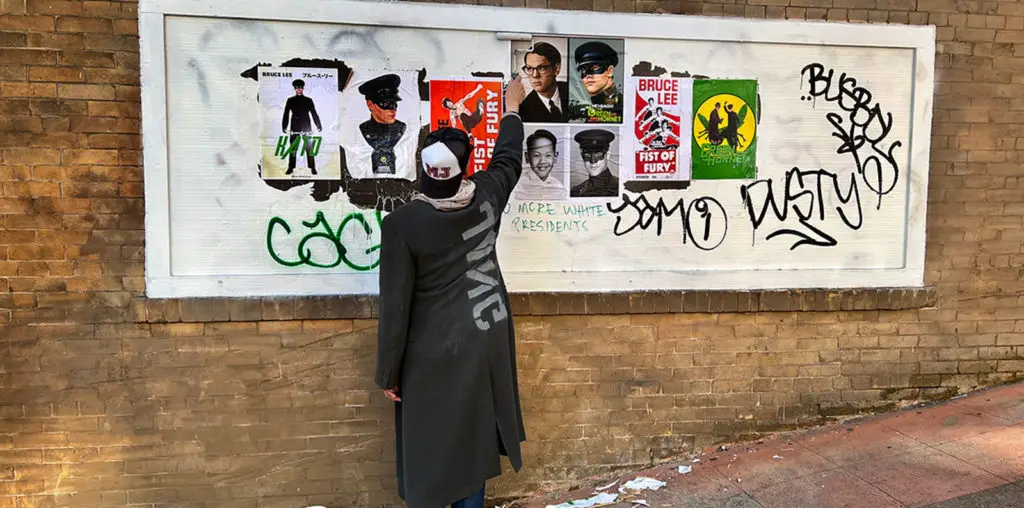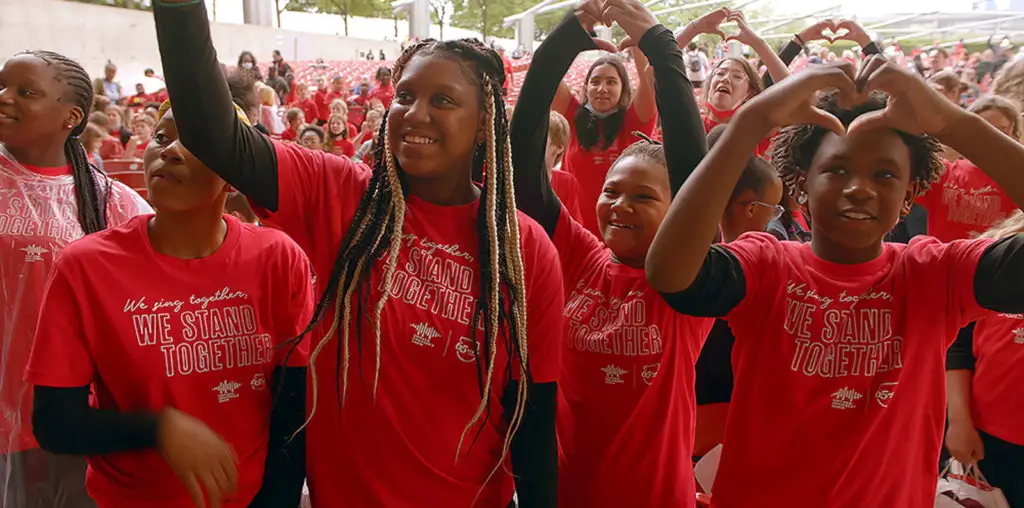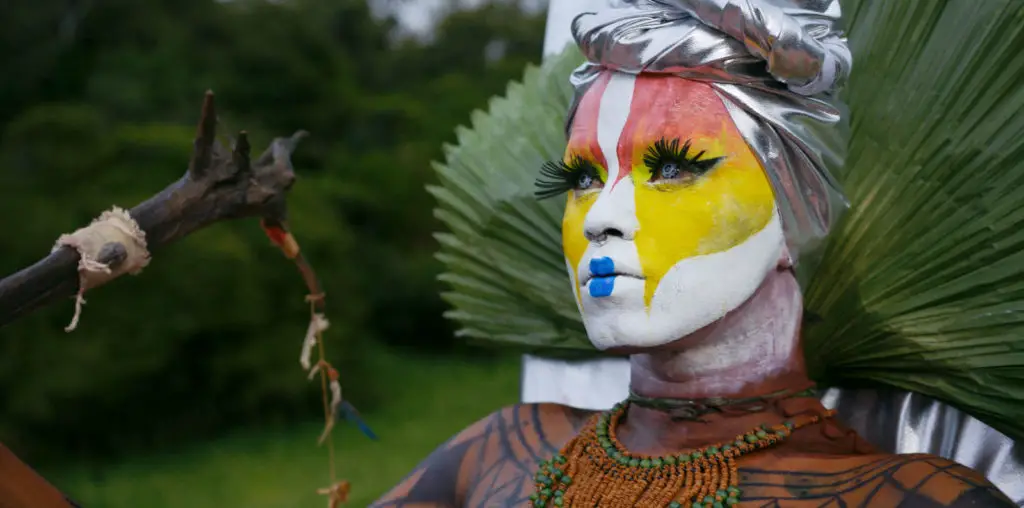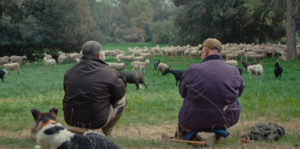
Paul Faus’ POV documentary, Fauna, uses cinema verité style storytelling to nudge us to reflect on the importance of animals in our lives, both good and bad.
Fauna opens in the Spanish countryside. A shepherd must rescue a stray goat and return it to the herd. The camera then pulls back to a science lab in the same remote countryside, feverishly developing a COVID-19 vaccine through animal experimentation. Remember, this is a documentary, not a sci-fi thriller.
Director Faus walks us down two individual story paths. The first is the shepherd, who has been herding sheep and milking goats since he was a young man. Today, his future becomes uncertain as he is afflicted with a debilitating bone disease, almost assuring a quick retirement from his only profession.
The second path is the science lab working to save the world through a COVID-19 vaccine. We follow two technicians as they meticulously follow contamination protocols, ensuring that the world is safe from their work and that the world’s germs, microbes, and bacteria do not contaminate and alter their work on the inside. Once inside, they work on herding sheep, pigs, and other livestock for experimentation.
In one side story, a bug is found in the lab, and the lab’s director must investigate how it got into the hermetically sealed laboratory.
The two stories we follow open up several questions about man’s relationship to “fauna,” from a lifelong practice of raising and slaughtering animals for food to the relatively new process of animal experimentation.
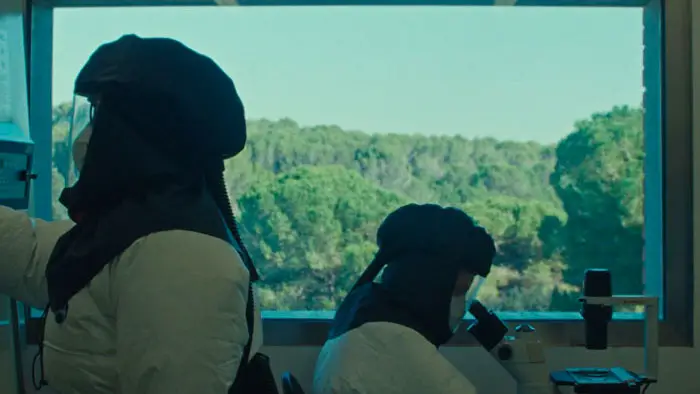
“We follow two technicians as they meticulously follow contamination protocols, ensuring that the world is safe from their work…”
For the shepherd, it’s bad enough that he can no longer do the strenuous work, but the shepherd laments that his profession is dying. Young people are not interested in the old, labor-intensive jobs…let alone jobs that imprison and slaughter animals.
In the lab, experiments are conducted to “stop the spread.” As animals are brought into the lab, we are told that because of the highly infectious nature of COVID-19 (just go with it), none of the animals will ever be allowed to leave the lab. The scientists are often confronted throughout the film about the controversial nature of their work…even if it means prolonging a pandemic. But press on, they do.
I am not the biggest fan of cinema verité documentaries, where it appears that cameras are set off in the distance and simply film everyday human interaction. For example, we learn of the shepherd’s ailment through a dinner conversation with his wife. Discussion of his dying profession is shown through a casual lunch chat with a co-worker. The scientist talks about their plans for the weekend. Some of the conversations feel a bit staged but authentic nonetheless.
Though I’m not a fan of cinema verité, it works beautifully in Fauna. This is one of those times when the sterile subject of science really needs a bit of life and authenticity injected into the narrative. Fortunately, there’s not a lot of dramatic dialogue, so the subtitles are not burdensome in the least. I also think that following a blue-collar worker from the start helps connect us with the story when we transition to the science portion. Let’s also not forget the cute animals, followed by a demonstration of the lab disposal process.
Fauna is a thought-provoking documentary that uses a cinema verité style to explore the complex relationship between humans and animals. Paul Faus masterfully intertwines the lives of a shepherd and lab technicians, prompting us to reflect on the ethical implications of our reliance on animals. Despite its understated approach, the film delivers a powerful commentary on tradition, science, and the uncertain future of both.
Fauna is available now on the POV page at PBS.org.
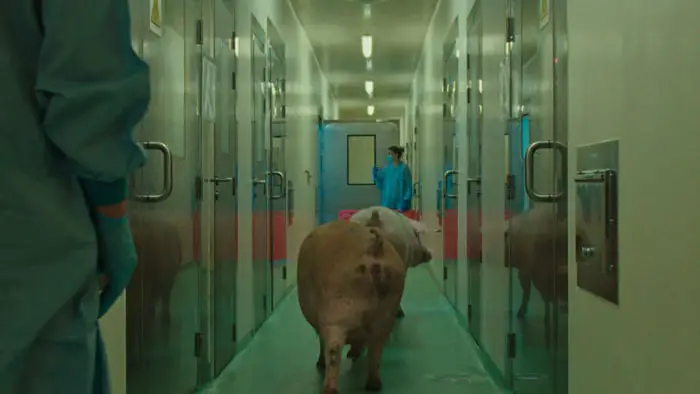
"…uses a cinema verité style to explore the complex relationship between humans and animals."
